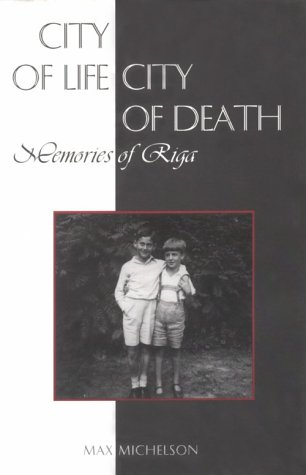
City of Life, City of Death
by Max Michelson
"Memories of Riga"
Popularity
2.1 / 5
* A book's popularity is determined by how it compares to all other books on this website.
Where to buy?
Buy from Amazon* If you buy this book through the link above, we may receive a small commission at no extra cost to you.
City of Life, City of Death by Max Michelson
Details
War:
World War II
Perspective:
Civilian
True Story:
Yes
Biography:
Yes
Region:
Europe
Page Count:
202
Published Date:
2001
ISBN13:
9780870816420
Description
Main Themes and Topics
City of Life, City of Death by Max Michelson delves into the turbulent history of Latvia during both the Soviet and Nazi occupations. The primary theme of the book is survival amidst the harrowing events of the Holocaust and the broader political upheavals that swept through Eastern Europe in the 20th century. Michelson’s memoir vividly recounts the loss and resilience experienced by his Jewish family in Riga, providing a poignant testimony to the atrocities of war. This personal narrative also highlights themes of memory, loss, and the enduring human spirit.
Writing Style and Tone
Max Michelson’s writing is stark and evocative, employing a narrative style that blends personal anecdotes with historical context. The tone of the memoir is both somber and reflective, effectively conveying the gravity of the experiences lived by Michelson and his family. Despite the heavy subject matter, Michelson manages to infuse the text with moments of hope and gratitude, crafting a balance that keeps readers engaged while honoring the memories of those who were lost.
Brief Summary
In City of Life, City of Death, Max Michelson recounts his life from a serene childhood in an upper middle-class Jewish family in Riga, Latvia, through the traumatic periods of Soviet and Nazi occupations. The memoir traces the drastic transformations in Latvia, where annexation by the Soviet Union and subsequent Nazi invasion resulted in the destruction of Michelson’s family and the broader Jewish community. Through his personal lens, Michelson portrays the stark realities of war and genocide, ultimately sharing his journey of survival and the process of rebuilding his life amidst deep scars and loss.









